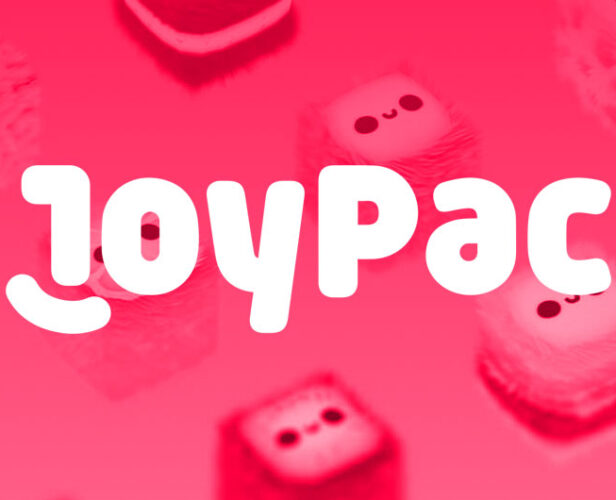-
Analytics Tools
-
Powerful analytics
-
Upgrade to Pro
-
Data Tools
-
- Resources
- Pricing
Author profile
Falko Böcker
Senior Publishing Manager at JoyPac

6 min read
#Marketing & Publishing
Top Tips for Choosing Hyper-Casual Publishing Partners in China
There are quite a few things a developer or publisher needs to consider before working with a Chinese publisher. Here are some of the big questions you should be asking: Would their current partners recommend them? You can ask the publisher to show you examples of the games they’ve launched, companies they work with and what results they’re getting. But that can only tell you so much. It can be extremely insightful to check who they’re already working with and contact those people directly. We recommend talking to at least two or three of the publisher’s current partners. Every developer might have had a different experience and hearing only one story might not tell you everything you need to know. Who’s on their team and how is it structured? You should find out what the publishing team looks like. Do...

3 min read
#Marketing & Publishing
Hyper-Casual in 2021: What to Expect in Eastern and Western Markets
Hyper-casual games boomed in 2020. With so many of us confined to our homes, the mobile gaming industry saw a peak worldwide – especially in the Chinese, Indian and Brazilian markets. During the lockdowns, active users went up 200%. The average length of gaming sessions went up 20%. And hyper-casual games alone generated 1bn monthly downloads. Can these numbers remain so high? Could they go even higher? Here’s what we’re expecting to see in the market in 2021. IDFA changes will affect hyper-casual the least While IDFA still remains a question mark, the iOS changes seem unlikely to affect hyper-casual games directly. This is because the hyper-casual genre has a broader audience than other categories and targets users differently. Meanwhile, ad money could prove to be an issue due to other genres like mid-core games getting hit with the IDFA...

11 min read
#Data & Analytics
iOS14 and IDFA Changes: What It Means for Mobile Developers
We recently held a webinar to discuss the changes we can expect from iOS14 and rule changes to IDFA that are due in early 2021. It was an interesting, lively discussion with GameAnalytics and Tenjin, answering some of the developers’ and publishers’ most pressing questions. We’ve had some time to reflect on all the topics we discussed. Here are our takeaways: So what is IDFA? IDFA stands for ‘identifier for advertisers. It allows advertisers to follow users through the experience – from seeing the ad in another app and then actually ending up in your app. Apple first introduced it and it’s exclusive to iOS Devices. But there’s a similar system on Android. Users do have the option to disable IDFA, but it’s always on by default. And what’s changing? From some point in early 2021, the default for IDFA...

11 min read
#Game Design
5 Things to Consider When Designing Hyper-Casual Games
Editors note: This blog was written by hyper-casual specialists, JoyPac, and is based on their recent webinar: Design Strategies for Hyper-Casual Game Development. JoyPac specializes in publishing hit hyper-casual games across the globe, and today they have agreed to share their top tips and strategies. To develop a successful hyper-casual game at hyper-fast speed, you need to have a clear production process that focuses on game design. A lot of developers jump into creating hyper-casual games without proper planning and without proper testing. This often leaves them with little idea of how much appeal their game will have, and with a lot of hard work going to waste. We (JoyPac) recently hosted a webinar on this exact subject, along with Umami Games and SuperPlus Games. Based on that webinar, we’ve put together five major things to consider before you set...

11 min read
#Marketing & Publishing
Launching Mobile Games in China (Tips from JoyPac)
China is already the biggest mobile game market in the world. Over the past few years this market has undergone astonishing growth yet, even so, the sheer potential of this market remains untapped by the majority of Western games developers. With this being said, more studios and publishers need to update their strategy to take this market into account and avoid overlooking a potential goldmine. Be aware, however, that publishing in China comes with a range of challenges unique to the market. To make things easier, many developers and publishers opt to work with local partners (like JoyPac), to help overcome certain pitfalls and gain access to this powerful economy effectively. In the past, working with Chinese-based companies has been a bit of a headache. There are many reasons for this, including cultural and language barriers, as well the more...

7 min read
#Marketing & Publishing
China’s Approval Process: Getting Your Game The Green Light
Our friends at JoyPac recently wrote us some tips about how to get your game published in China. In this second installment, JoyPac’s Falko Böcker looks at the details of China’s ever-evolving process for granting publishing licenses. Publishing games in China is a complicated business. The State Administration of Press & Publication (SAPP) decides who can get a license to publish games, and their approach is very much ‘quality over quantity’. They’re limiting the number of developers who can publish games in their territory, and they’ll only greenlight games of a high standard that they see as healthy entertainment for Chinese gamers. The rules have changed recently, and are likely to keep changing in the future. So we’re going to run through what it takes to get a license, and explain how we go about navigating this tricky process. So...

7 min read
#Marketing & Publishing
Common Cultural Differences When Publishing Games In China
Just in case you haven’t noticed, China is massive. It’s now the largest single-language market on the planet – three times bigger than the US. To put that into perspective, China has 242 million iOS devices, which is pretty much the same number of the total mobile phones in the US. That should mean it’s rich pickings for game developers. But it’s not that simple. Because the way we market games in the West looks very different in China. Here at JoyPac, we combine the open and communicative style of western game publishers with the specialized know-how needed to be successful in Asia. And in this post, we’re going to help you navigate the potentially lucrative Chinese market, and avoid the potential pitfalls by telling you a bit about some of the cultural differences you need to be aware of...